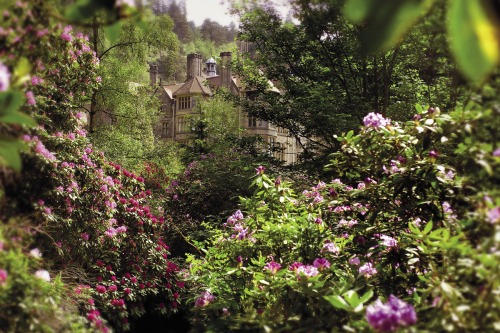We Meet the Last Piano Builders in the UK
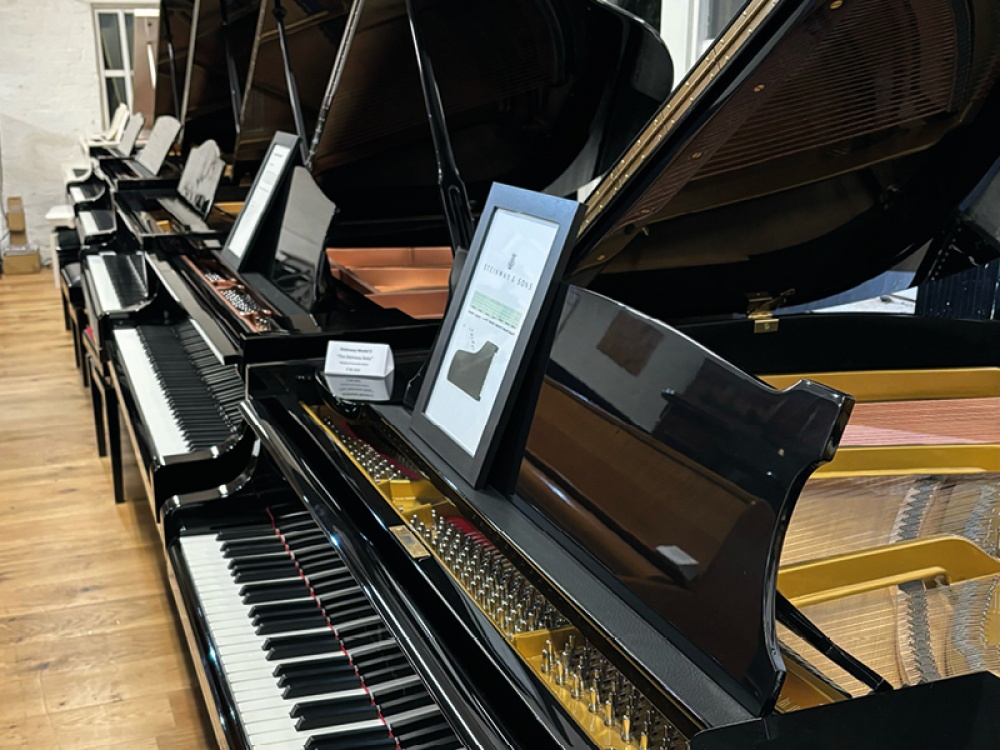
From their workshop on the Bolton Abbey Estate, Cavendish Pianos hand-build pianos for amateur and professional musicians across the world, and they are the very last place in the UK to do so. Living North spoke to co-founder Adam Cox to find out more
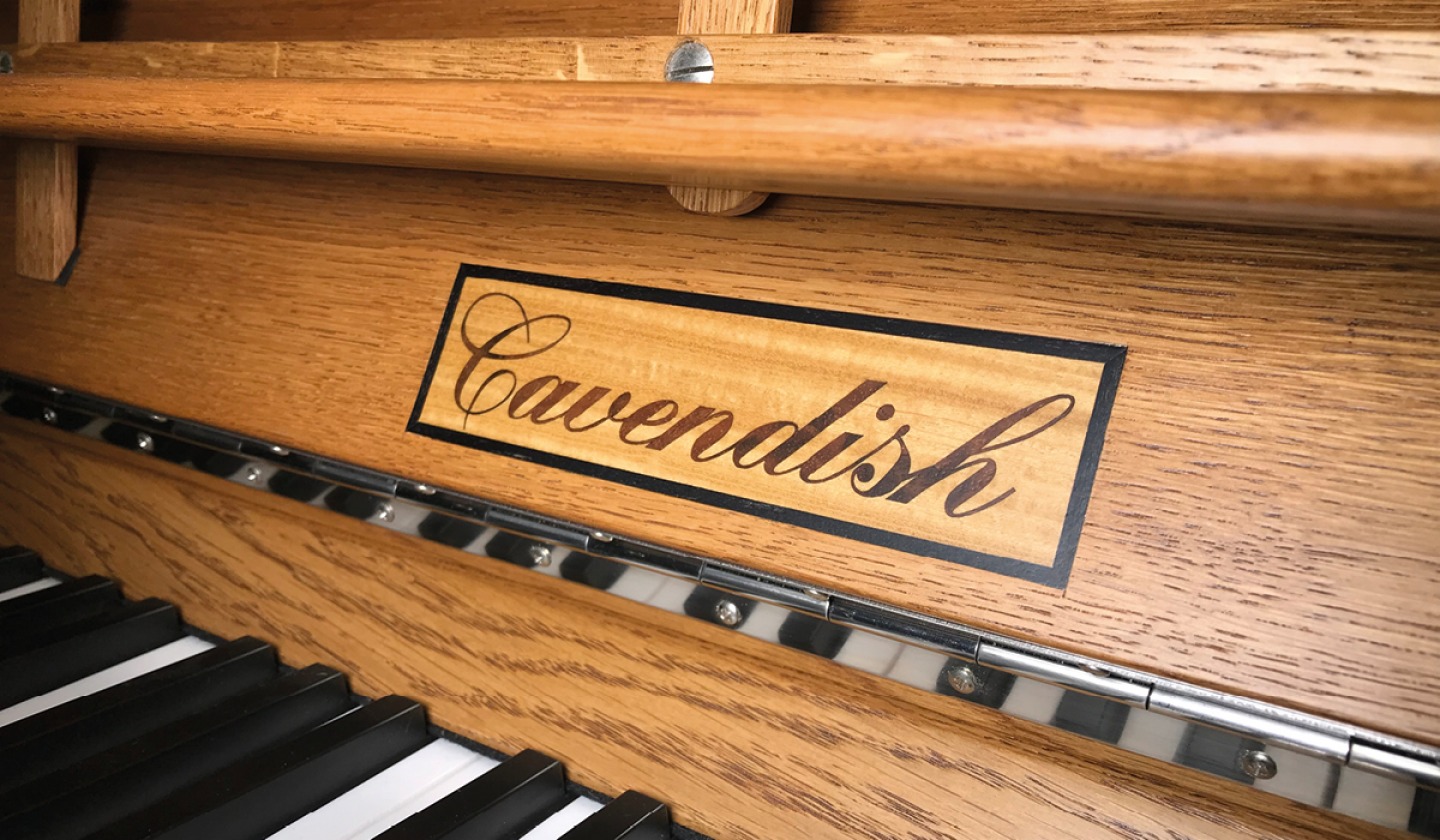
Adam and Charlie Cox, the husband-and-wife team behind Cavendish, arrived at piano building through a series of coincidences. They first met in Leeds where Adam was studying French but, ever-adventurous, they soon emigrated to Bolivia to work on projects in the rainforest. ‘I couldn’t take a piano for obvious reasons,’ Adam tells me, so his solution was to take a flute. Unfortunately, or perhaps fortunately, the rainforest humidity was not on his side. ‘The flute gummed up all the time, so I was continuously taking it apart and putting it back together again, which I actually quite enjoyed.’ He enjoyed it so much that when they moved back to the UK, he enrolled on a musical instrument repair course at Leeds College of Music.
With this qualification, Adam went into business initially repairing and then ultimately selling pianos under their original name ‘The Yorkshire Piano Company’. One of the brands they sold was Kemble who, despite already having been acquired by Yamaha, were the last company still building pianos in the UK. Adam describes this as a ‘now or never time’ if they wanted to save the craft. ‘There’s been a history of piano making in the UK for about 200 years and I always feel that if it stops happening, there’ll be no-one to teach and there are so many things to know,’ he says. ‘If it was the end of that tradition, it would be tragic.’
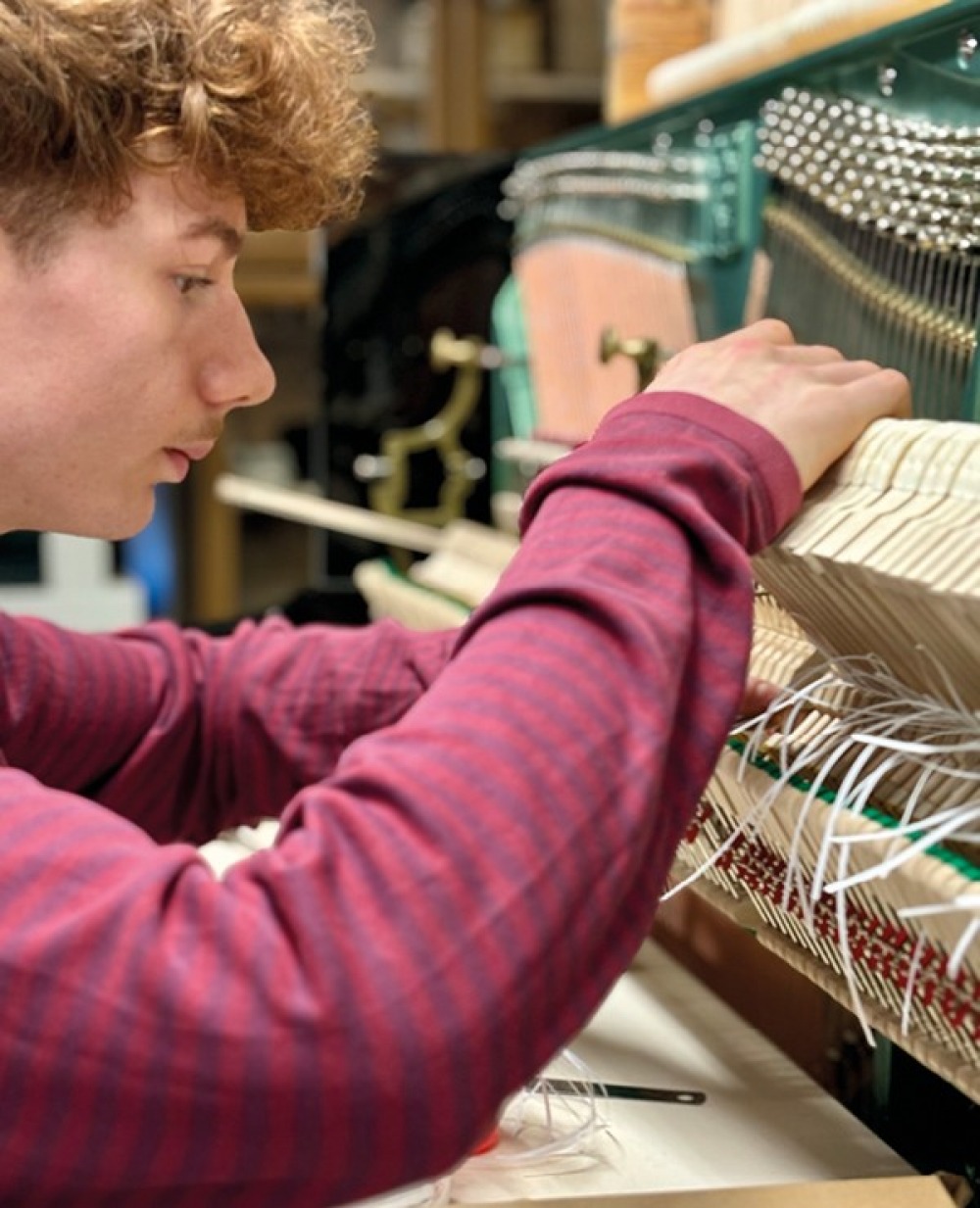
In 2012, they launched their first three pianos at Musikmesse, which was a European music fair in Frankfurt, under the new brand name ‘Cavendish’ after their sponsors, the Duke and Duchess of Devonshire. It may seem melodramatic to describe the threat to UK piano building as ‘extinction’ given that, by Adam’s own admission, probably more pianos are made now than ever before in history. ‘China has an enormous manufacturing base for pianos,’ he says. But the manner in which pianos are built is highly variable. Consequently, Adam says their customers arrive at Cavendish because they play a modern piano and find it a bit bright compared to the traditional English piano that they played when they were growing up. ‘The UK market is very much used to this more gentle, mellow sound and so we continue that tradition, and the way that we build pianos facilitates that sound,’ Adam explains.
Building a piano is a hugely complex process, but Adam explains that the structure can be roughly broken down into three main parts. For the benefit of those (like myself) who know nothing about pianos, he describes it as ‘sort of a sandwich, with the soundboard [including the strings] as the middle and the back posts and the frame being the pieces of bread on the outside.’ This forms the acoustic body. But, of course, a piano has to be playable. ‘If we were harp makers, our job would be done there, but we have to facilitate what’s called string to finger. That’s obviously the keyboard, which everyone knows because they see it. But that’s the tip of the iceberg.’
Behind the polished ivories that Adam and his team create is ‘the action’ which is the mechanism that leads to hammers hitting strings and strings producing sounds which are filtered into the melodic tones we hear through the soundboard. This is a hugely intricate process: ‘Each action has to be built individually for each piano,’ Adam explains, ‘there’s no sort of “one size fits all”. Similarly, each case is built individually for each piano.’
The distinct British tone of their pianos is the cumulative result of dozens of details, ranging from the materials used for their components to the exacting way in which they are put together.
‘All the little things come together to make one experience that is the tone of the piano,’ Adam explains. A piano isn’t finished just because it is technically complete. At this point, the building team turn the piano over to Adam. ‘I play [the pianos] for quite a long time,’ he says. ‘We can always make adjustments. As well as being mechanically perfect, it’s got to be a really pleasurable experience to play. That’s the important thing.’
Because each piano is already essentially a bespoke item, the Cavendish team can build the pianos to suit the individual taste of their customers. They have recently expanded their range to include a concert grand piano and a large grand piano, called the Wharfedale, on top of their existing range of three upright and two grand pianos. As an example of how bespoke their pianos can be, Adam tells me that they are currently building a Wharfedale out of a wild oak that happened to capture the imagination of a customer.
A process as precise as this takes time, and Adam estimates it takes about six months to complete a piano. ‘We have several on the go all at once so we are producing about 40 pianos a year,’ he explains. The operation is a relatively small one, but Adam says they have no plans to get any bigger. ‘This size works well, and we’re in a lovely premises in Bolton Abbey which is an important part of it because it’s such a lovely environment.’
The premises to which Adam is referring are actually a former blacksmith’s forge that they just happened to come across on a day out. Working from a site with an existing legacy of heritage craft feels appropriate for the firm, given that the businesses that they partner with to make components are now part of a craftsman’s cooperative. For example, the felt used in Cavendish’s pianos is supplied by Hainsworth, a 235-year-old textile mill in Leeds – the same firm that supplies the scarlet cloth worn by the King’s Guards. Similarly, their cabinets are made close by. ‘They’re built over the hill in Otley,’ Adam explains, ‘and then they bring them to us when we’re ready. There’s a firm that does the marquetry – the name that says Cavendish that’s inlaid in the wood – and they’re in South Wales. There’s a chap that makes the strings, he’s in Oxfordshire, and so it goes on…’
‘The distinct British tone of their pianos is the cumulative
result of dozens of details, ranging from the materials
used for their components to the exacting way in
which they are put together’
Being the only builders of pianos in the UK also makes Cavendish’s workshop an essential resource for the students studying to become the piano restorers, tuners and – if they’re lucky – builders of the future. They have a long-established relationship with the piano department at Newark College’s School of Musical Instrument Crafts and, more recently, have begun working with The Piano Technology School in Rugby. Students from these schools travel hours for open days that give them a chance to experience what a career with Cavendish could be like.
Adam describes life as a piano builder as an ‘old-fashioned job like people had in the olden days; when you had a job and you pretty much kept on doing it’. For example, workshop manager Adam Connolly began as an apprentice in 2010 when they were still The Yorkshire Piano Company and their current apprentice, Felix Dombay-Walker, has now been with them for six years. A few of their employees have come from Newark, but Adam says this isn’t essential. ‘We start training people from the beginning,’ he says. ‘So they don’t necessarily need anything apart from an interest in…’, he pauses to reconsider, ‘well they don’t actually need an interest in anything as long as they’re good with their hands… but it helps if they’re interested in music. It’s nice to be able to play the pianos once you’ve made them,’ he clarifies.
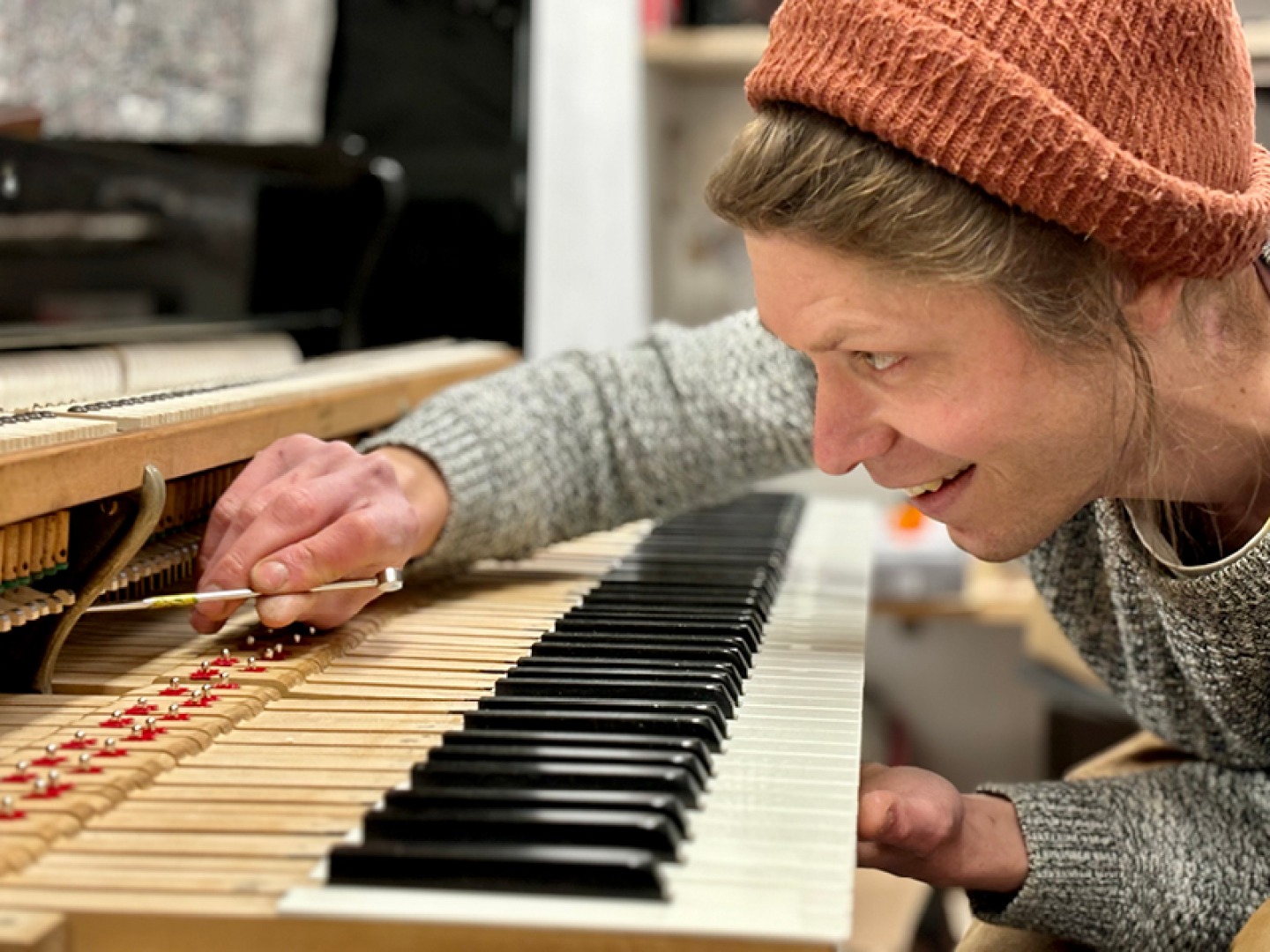
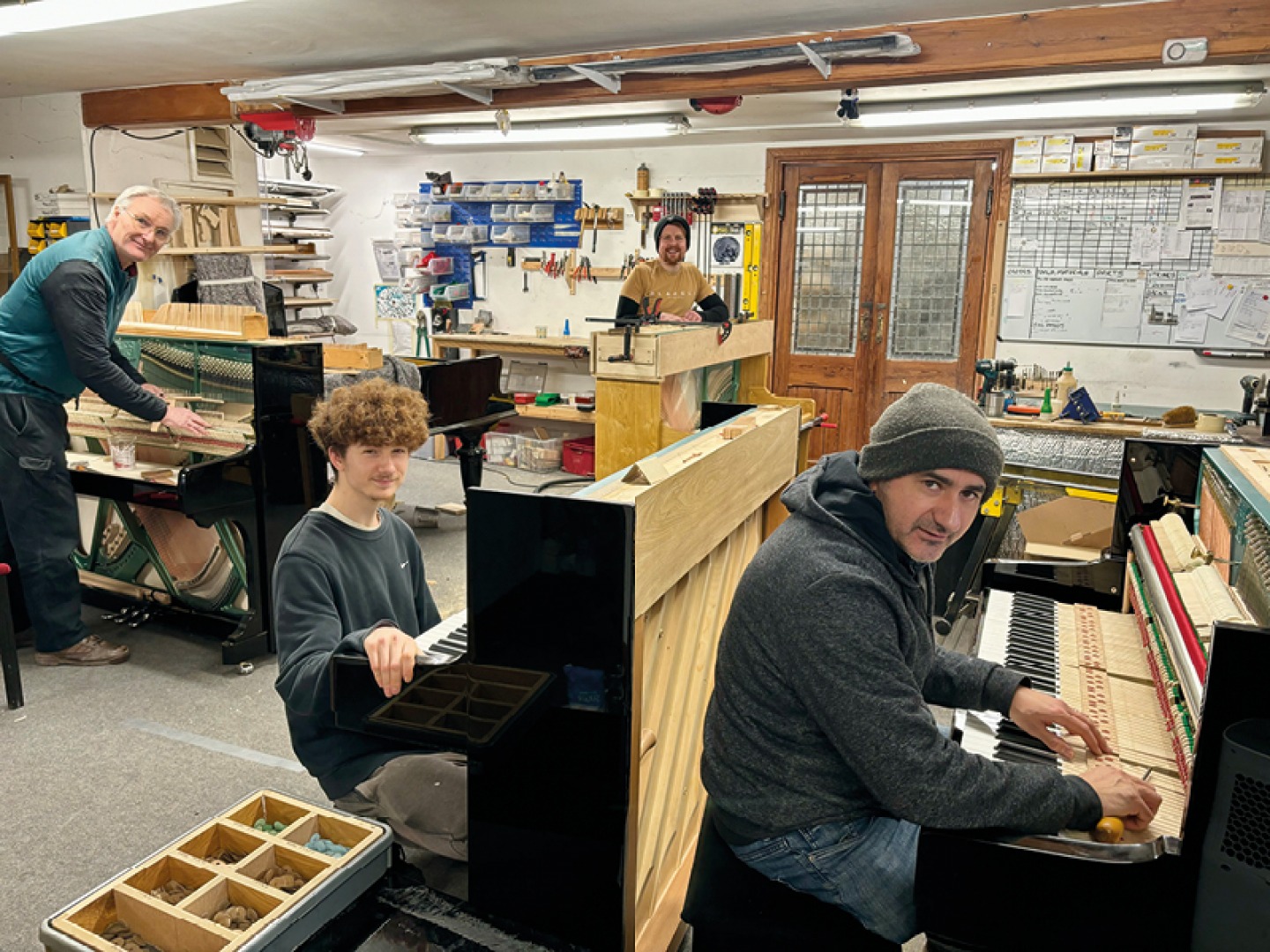
His hesitation is possibly because the business has been built around a family life in which music is a given. ‘I don’t perform professionally, but I enjoy playing, that’s for sure,’ Adam tells me. This love of music has been passed on to his three daughters, who are all now involved in the business in some capacity. ‘Pippa is a piano tuner, Daisy (our eldest) helps with the website and Millie (the youngest) is involved with ideas,’ he says. ‘It’s very much a family business, and we’re all musical.’
While Adam is keen to point out that pianos are not just a sentimental purchase, but an astute financial decision (‘people buy them for investment reasons as well: the price of them is going up all the time’) ultimately, it’s the notion of giving future generations the opportunity to learn to play and enjoy music that makes building pianos so special. ‘So many things, you buy them and then they become outdated within a relatively short amount of time,’ he says. ‘To be able to buy something that your grandchildren will be able to pass on to their children is pretty extraordinary.’






